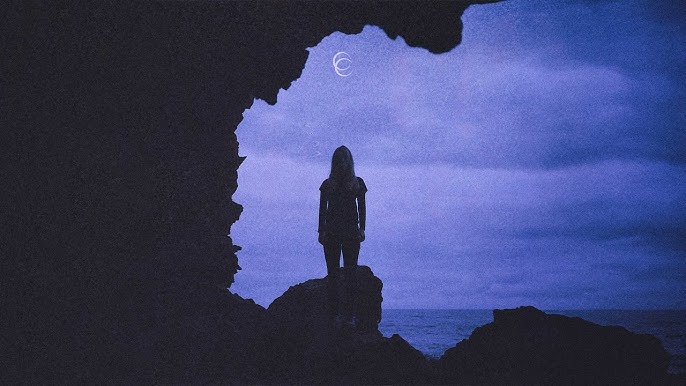
Is Cloud Rap Dead?
Cloud rap’s dreamy, internet-born sound may have faded from the mainstream, but its influence lives on. It reshaped hip-hop’s digital landscape from hazy beats to DIY online culture. Artists like Bladee and Yung Lean keep its spirit alive, while its aesthetic inspires modern music. Though its peak has passed, Cloud Rap’s legacy as a pioneer of internet-driven artistry remains undeniable. Explore its rise, reign, and lasting impact in this interview.
In this interview, Cade reflects on the evolution of Cloud Rap, exploring how streaming platforms, internet culture, and the commercialization of hip-hop have shaped the genre. He discusses Cloud Rap’s lasting influence on modern music, how it blends mood and atmosphere over technical skill and the challenges independent artists face today. Cade also shares his thoughts on key figures in the genre and its cultural legacy, emphasizing that while Cloud Rap may no longer be at the forefront, it continues to resonate in underground and genre-bending music and mainstream media today.
Welcome Cade.
It’s great to be here. Glad you could have me!
So today’s topic is about Cloud Rap, do you know what that is?
Yes, I’m a very big fan. Very big fan. I’ve been listening for a very long time, probably since the beginning. It’s been very important to me. I would say I’m a very avid music enthusiast. I work on my own stuff, on my own as well, and I also work at 89.1 Wider FM. I’m constantly looking at new music, seeing whatever people send me, and seeing if it’s worth playing.
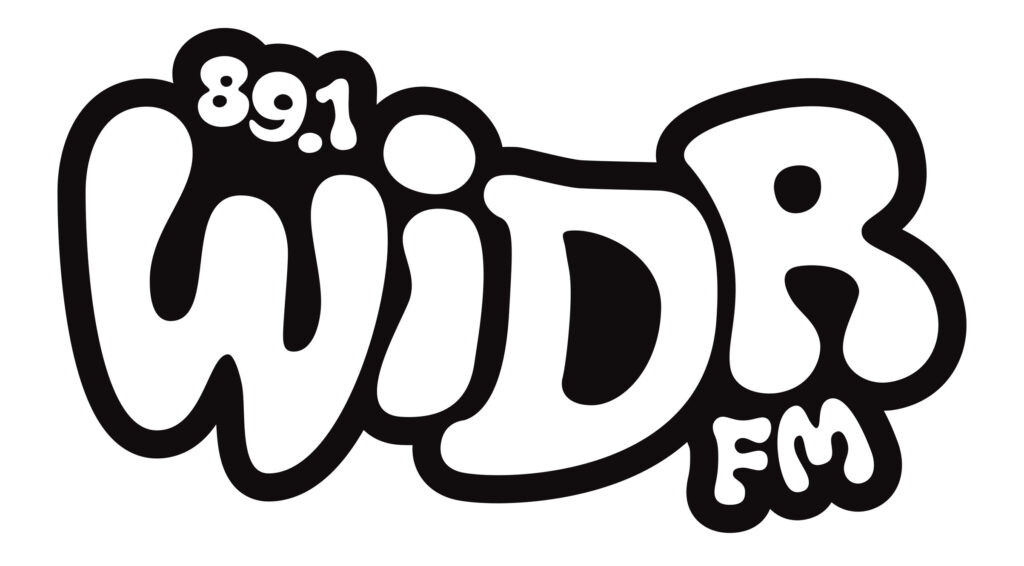
That’s why I brought you in here today. I have some questions. So, how would you describe Cloud Rap in your own words?
That’s a good question. I think cloud Rap is a genre that really extends from about 2011 or so to around 2019 I would say it is like the tail end of it, it’s a lot of focus on, like, psychedelic rap, a lot of big, almost bassy drums, uses of auto-tune as well, not necessarily in the sense of melodic trap that we kind of see today, but more of it is just kind of like a vocal effect, and a lot of focus on, I would say, drug use and introspection and kind of the impact that comes from that.
When do you think cloud Rap peaked in popularity, and what do you think are some factors that contributed to the rise of that?
There are many things you can talk about when it comes to that, obviously, the internet, which was bubbling and boiling over throughout the 2000s, but I would say how easy it became to get programming for it. For instance, getting production and vocal software and major streaming apps to become mainstream became easy, such as SoundCloud, Spotify, or even YouTube. You could just upload your songs on there, and how accessible it was for anybody to do what they wanted. I think that helped a lot, and just how easy it is to make Cloud Rap easy. “To make Okay, Cloud Rap, not necessarily great. Cloud rap.”
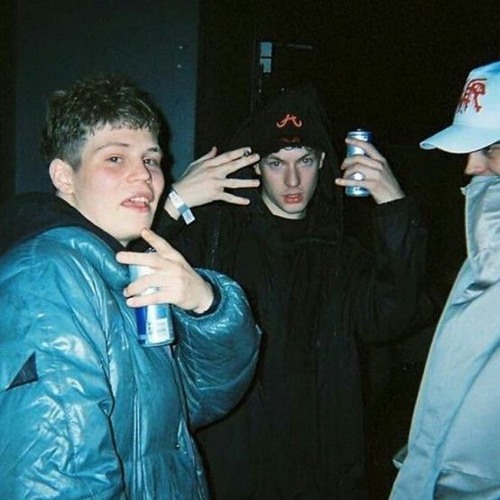
Who would you consider the pioneers of the subgenre, and how do you think they shaped the sound and culture around that?
I think there’s a lot of people. You have to talk about Lil B. I would say he was the first to really do that style and lay the foundation for this kind of subgenre. You have to talk about A$AP Rocky. It is the most mainstream splash out of the cloud Rap-up genre. I would say he was the first major breakthrough with many of his collaborations with Clams Casino and A$AP Yams, who handle a lot of his other production work. He also has to talk about drinking a lot of the people from, like European rap, so like, they’re a little later after these guys, but I think their style is really important. Like Bladee, Ecco 2k, Thai Boy Digital, and Yung Lean, all of these people, I would say, are important to kind of forming this foundation of cloud Rap. And if you want to go back further, you can also look at their influences. You could talk about 808s and Heartbreak by Kanye West, where he like, delves into auto-tune, not just as an effect that you can use as an R&B performer. But he raps with auto-tune, which is something that wasn’t really done at the time. His production style at the time used those big, powerful, really bassy toms, especially on “Love Lockdown,” where he has huge drum patterns. You can kind of see that influence on a bunch of other songs from other artists as well. And you also have to talk about Future. He really put that auto-tuned dark southern trap on the map. And a lot of people like Yung Lean cite him as a major influence when it comes to their own musical style.
How do you feel Mac Miller contributed to the scene?
I think he really kind of took it and ran with it. I would say, because Mac Miller was originally making like, you know, very poppy, very frat rap, especially on his first album or two. And I think you kind of see the change at the end of Blue Slide Park, his first studio album, where he has a couple of song clips, you know, and like, after that, you really see him kind of delve into this before he, like, changes up his style, which unfortunately, you don’t really get to see due to his passing. Because originally, I would say, like right after Blue Slide Park, he really dives into it with, like faces, which is, I would say, his best mix tape, and especially with his most recent posthumous release, Balloonism, he really kind of dives into that a little more, even though it’s a little out there, I would say, along with watching movies with the sound off, and even a little bit on his last album, Swimming, he kind of takes that style and kind of forms it in his own way. And then we see him, unfortunately, before he passes away. He did record some more interesting things that were a bit out there, but I believe he really morphed the style into his own unique vision and kind of took the aesthetic and kind of culture that went with it and really exposed it to a more Mainstream type of crowd.
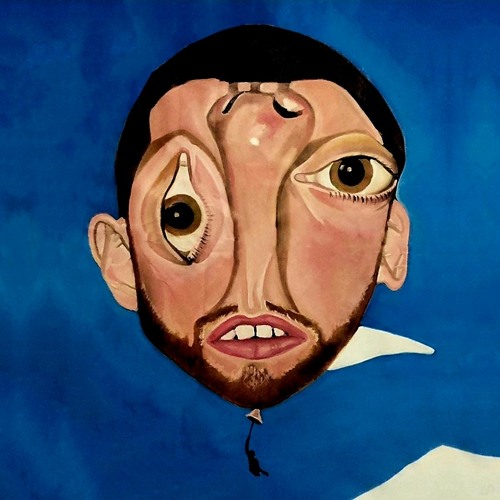
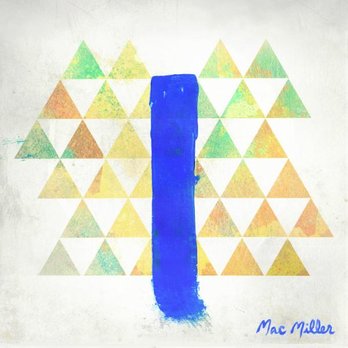
Do you think Cloud Rap is association with the internet culture and platforms like SoundCloud helped or hindered its longevity?
I think it helped so much. I think Cloud Rap and SoundCloud in general, is synonymous with that internet culture. You really don’t get any of the stuff without the Internet. You can’t really be making music like this without that, I think, like without that platform where anybody can put anything on there, you don’t get a lot of out there people like you don’t get little ugly name, or like, you know, Yung Lean again. You don’t get a guy like him, you know, Travis Scott. Travis Scott especially, or like Kid Cudi. You don’t get those kinds of people without the internet because their music was at least at the time, so out there compared to what was mainstream. I think having that internet culture kind of really helped, because it let them spread out into other cultures and also take in new things from the internet as well.
Let’s talk about the visuals that go along with the Cloud Rap aesthetic. Do you think those define cloud Rap as much as the music defines it?
I think it’s important. It’s kind of like how an album cover is essential to the album experience. You know, you see it all the time with, like, every time there’s a huge, like, giant, best-selling album, you see the cover, and it’s an iconic cover. A lot of people know the covers, and not even the artist you know, like the Led Zeppelin albums one, two, and three. A lot of people haven’t listened to the albums at all, but they know the cover. So I think having that very strong iconography helps with sort of brand awareness. I suppose when you see stuff that’s quote, unquote, Cloud Rap aesthetic. You know, it’s cloud Rap, and you know what they’re going to do. I think having those very hard set visual aesthetics, especially like a lot of vaporwave aesthetics, because vaporwave was starting to become mainstream as well at the time, I think having those kinds of low-fy, low poly visuals, especially in like the visualizers, or like a lot of early like 2000s anime references that kind of came with the style that they were going for, and it really helped kind of cement what people thought of it and kind of made everybody very aware of the cloud Rap brand.
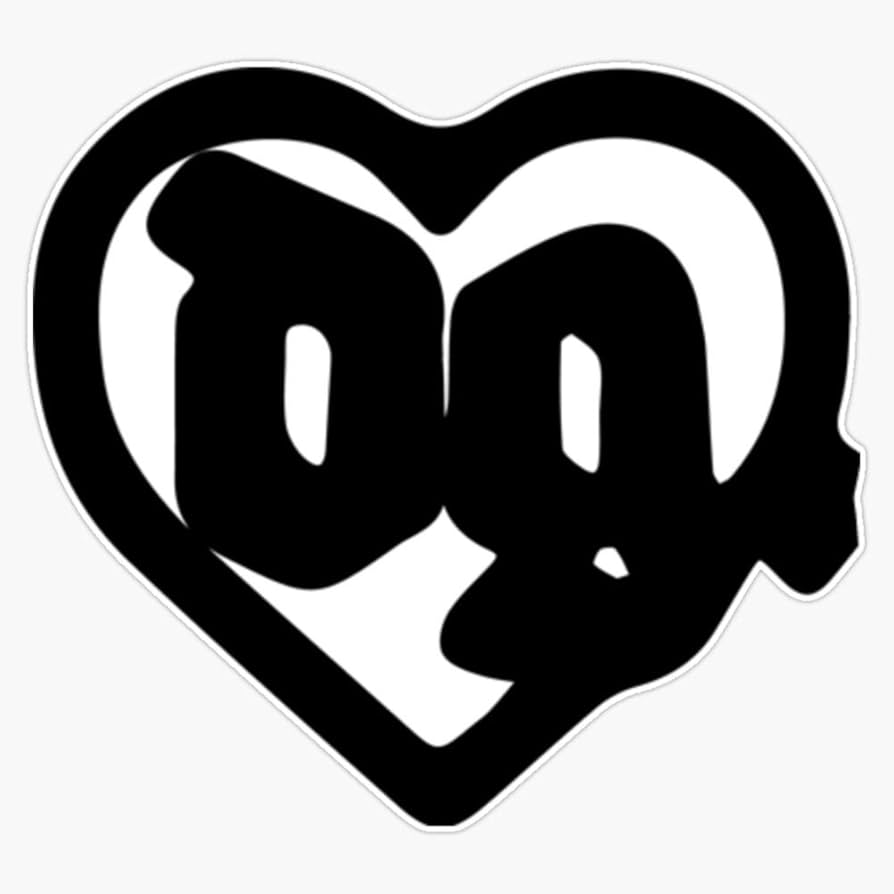
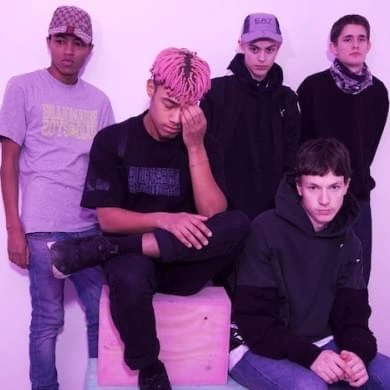
Do you think cloud Rap is still relevant, or has it been overshadowed by other subgenres like trap, drill, or hyperpop?
It’s folded into it. Cloud Raps a very easy style to replicate, and it’s a very easy style to start off with. A lot of these bigger players who started at the very beginning of this genre still make music today. Still, a lot of them have kind of taken their original style. Kind of molded it in with other genres, especially like Bladee and a lot of the people from like Drain Gang in Northern Europe. A lot of those people kind of focus more on, like, the hyper pop side, I would say, as opposed to how we think of Cloud Rap today. I think it is still relevant in the impact that it has had and in the influence it has put on people, not necessarily how much music is made out of it today.

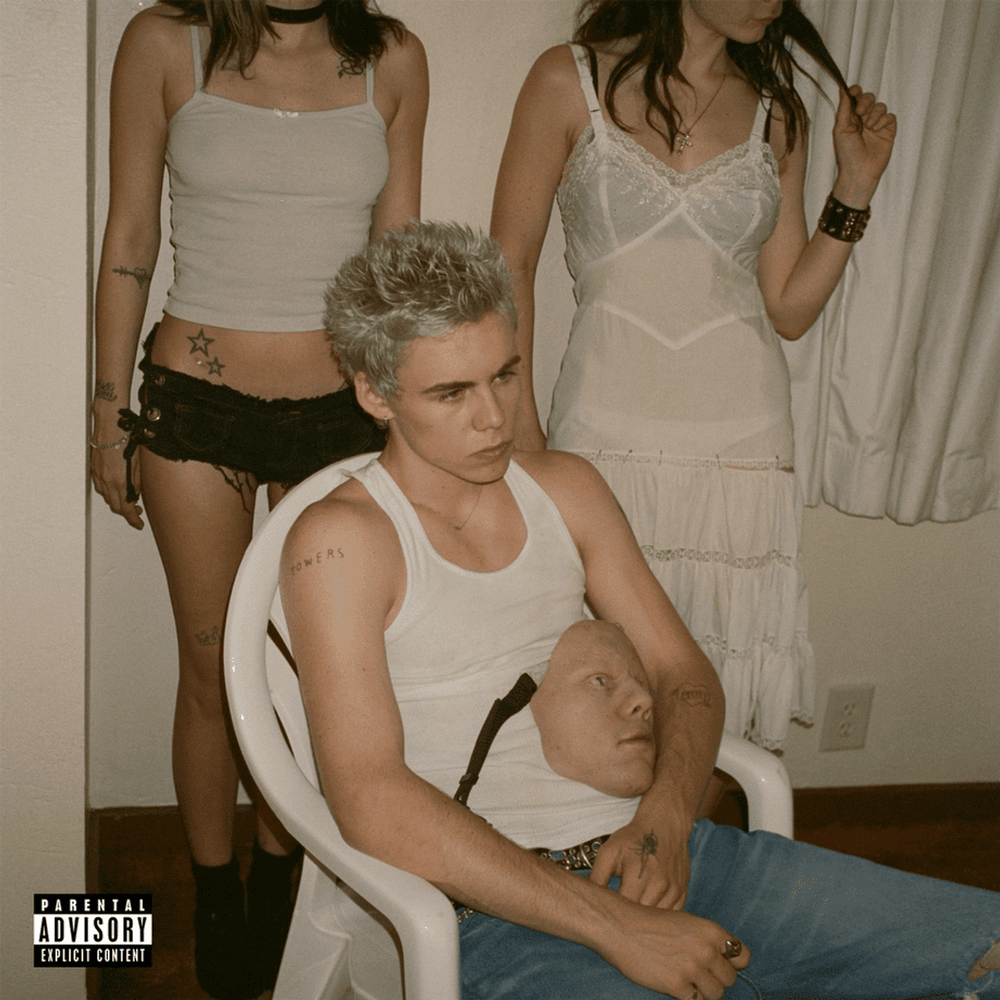
Are there any modern artists you think are keeping the spirit of Cloud Rap alive, even if they don’t explicitly identify themselves with the subgenre?
Oh, totally. Um, there’s a lot of lingering vestiges, I would say, of Cloud Rap and a lot of underground artists, um, and even some more mainstream artists, like, as silly as it sounds, um, TheKidLaroi had that song “Nights Like This” that sounds almost like a Cloud Rap song, even though it’s really more of like a, like pop R & B sock, it still has those little pieces of it in there because of Clams Casino. I think there are a lot of people in underground rap, too, especially on SoundCloud, that still work with Cloud Rap a lot, even if it’s not exactly how you think it should sound, like people like 2Hollis, who kind of works with that very strong, more, I would say, distorted version of cloud Rap, not necessarily the kind of pretty ethereal samples. He’s great. A couple of people, probably Nettspend, work a little bit with it, too. He’s folded it into a couple of other influences that he works with, and Summrs and Autumn! also as well. They kind of run with that, like psychedelic aesthetic that a lot of people kind of took after Travis got kind of exploded, like that kind of psych trap that he was working with later in his career, I think you kind of see it trickle down. Um, as time goes on, you can see where people made each connection and how there are still pieces of Cloud Rap and the music that’s still being made today.
How do you think the evolution of streaming platforms and algorithms has affected niche genres like Cloud Rap?
I think it’s been good and bad for them. Many more people can see those genres and be exposed to that different kind of music, but I don’t know if it’s necessarily been a great thing overall. I would say I think having access to years worth of music at the very tip of your finger is not really going to make you experience it the same way that a lot of people who were there experienced it, you know, and you won’t, I would say, interpret it the same way they did, because you’re looking at it two years, three years, five years out. And I think that is kind of, I would say, lessened the impact of it. And also, you can kind of see how quickly it fades if nobody’s really that big of a fan, if it’s just popular, you know, like, remember when hyperpop really blew up? Like, 2020, 2021, around there. And, like, everybody was listening to it. 100 Gecs was on every single person’s Spotify. Everybody was listening to them, like Eric Doa, Glaive, all of these quick, like, very fast trailblazers in the genre. And then it just disappeared. Those artists, some like them, still make music, but people just don’t really listen to it anymore because they see it as a fad and not necessarily an art form. And I think that the problem with these streaming services is that they make art a commodity and not necessarily a genuine expression of an artist.
What does it mean for a genre to be dead? Do you think Cloud Rap fits that description, or has it simply evolved?
I don’t think so, especially in the age that we live in, that any genre is truly dead. Like right now, we’re seeing a lot of 80s and new wave revival and a lot of pop music, especially with things like Dua Lipa, you know, The Weeknd. Most recent couple of albums have been very 80s heavy. You know, I don’t think any genre really dies. It just gets folded into something else that we don’t see until a little bit later. And I don’t believe so Cloud Rap is definitely not dead. It had its time in the sun, but now it’s just a part of something else. Many people don’t say they make Cloud Rap, but it’s in there. It’s in their music, and you can hear it even if they don’t want to admit it. I think it’s just changed in a way that a lot of people who were originally listening at the time when it started really blowing up aren’t really going to notice because it’s been folded into a lot of other influences, like glitchcore, electronic, hyper pop, a lot of that, like “rage music”, you know, like your artists on the Opium label, your Trippie Redd people making that type of music, your Yeat; people making that kind of current, more popular underground rap, I would say it’s just kind of folded into that, and you can only hear bits and pieces of it, but it’s still there.
Do the DIY, studio, and bedroom Pop points of what Cloud Rap used to be about still linger on today?
I think a little bit, I think there’s always going to be people who are independent of studios and are not going to want to be in on that. I think a lot of people are going to be making stuff in their bedroom like always, just because it’s so easy to do it now, I know a lot of people do. I don’t think it’s the same as it used to be. Especially when you really saw the peak of it. I would say, like 2015 to 2018, is the peak of that, like bedroom aesthetic and like Bedroom Pop, like Bedroom Rap, all of that type of stuff really kind of peaked around then. You had artists uploading major tracks every single night on SoundCloud, you know, like you had Kota the Friend, Cuco, BrockHampton , for what, four years? Even X was like that yeah, like a lot of those very quick up and coming like Sound Cloud rappers, even if they didn’t necessarily make Cloud Rap, they still kind of interacted with the platform, I would say. And just like people doing it themselves, I think a lot of people kind of present themselves as cooler than that, you know, like not as genuine. You know, they’re more about presenting a brand than presenting the art itself. And I think that just kind of comes with how the internet is now. It’s very keyword-heavy. If you want to get in, you can’t just be yourself anymore. You have to be your best and also know how to make the algorithm work to your advantage. You have to know the correct KPIs (Key Performance Indicator). You have to know what your market is. You have to know how to make people aware of your brand. And I think having to market yourself instead of just creating your art has kind of, I would say, dampened or weakened a lot of people using those like DIY aesthetics because it isn’t really popular anymore or seen as something the market wants.
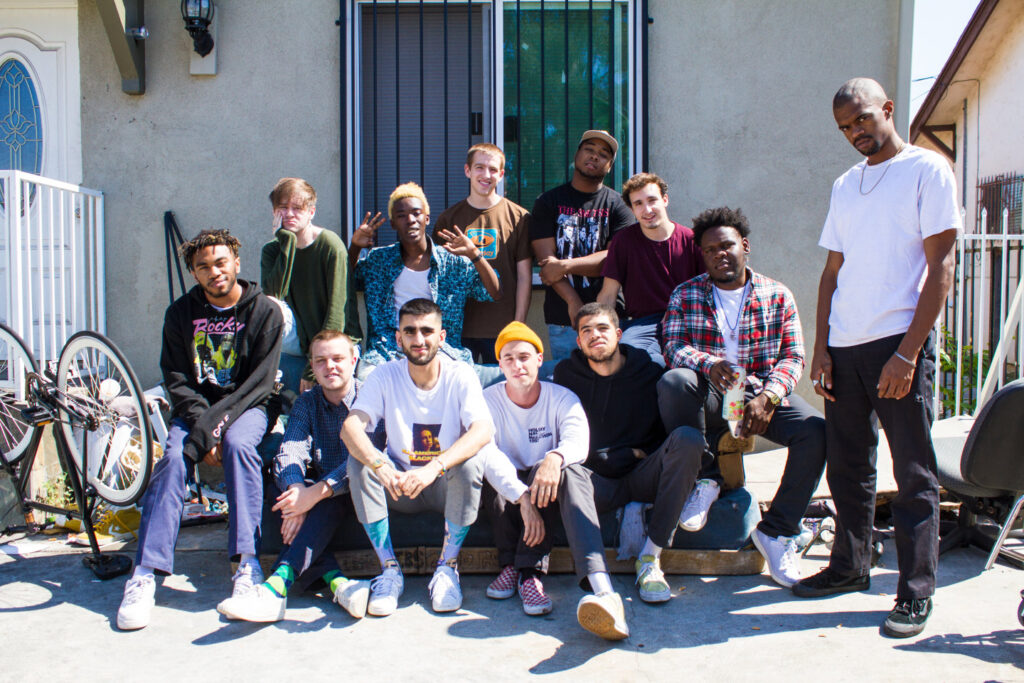
Do you think Cloud Rap could make a comeback, or was it a product of a specific moment in time that can be Replicated?
That is a really good question. I think a little bit of it will never be the same because of when it happened. It’s like the beginning of, like, not necessarily the beginning, but I would say the maturity point of that early Internet era where people were first starting to upload music. And I don’t think that will ever happen again, and it’ll never feel like that again. People are never going to make art like that, but I could definitely see several years from now, people looking back on the music of that time and kind of pulling from that to make new music, especially like, like I mentioned earlier, a lot of people doing the new wave, doing synth-pop, now back from like, using, like, the 80s and 70s aesthetics. So I think things are always going to kind of come back around. It’s usually, like the 20 year rule, before it comes back around, but I don’t think it’s ever going to be the same. It’ll never be as genuine as it was when it started blowing up.
Do you think hip-hop’s commercialism has made it more difficult for experimental subgenres like Cloud Rap to thrive?
I think it’s made it easier and harder, like I mentioned earlier, you don’t have to just make music anymore. You have to market yourself as well. And while a lot of artists now have more tools to do that, it doesn’t help everyone. I think it really just pushes the top people to the top because they have the most money to market themselves like that, and a lot of that more obscure and underground music doesn’t really bubble up to the top unless it’s like been there a very long time. There’s a lot of underground artists who have been in the underground for a very long time but still haven’t really seen any mainstream success, especially like Jace and DC the Don as well. He finally started blowing up on Tiktok, which TIkTok really is the game changer. It has a much more organic algorithm compared to a lot of other social media apps, and it’s a lot easier to promote yourself on there because it’s so quick to make posts; you can pump out 10 a day if you really want to, and it’s a lot easier to get people to see you. That’s really been the game-changer in all of this. Before that, it was tough to break out there kind of. But, yeah, it’s not really helped anybody out. All it’s done is change the system in a way that makes it harder for smaller artists to get out there, it kind of kicks them off a cliff and throws the tools behind them.
How do you think the rise of hyper-pop and other genre-bending styles have impacted the legacy of cloud Rap?
I think in a way, it’s almost made it more popular because a lot of those genre styles and those artists that kind of blend those genres pull a lot of influence from Cloud Rap. And because of that, all of these, a lot of these, younger or newer listeners are going back to a lot of the staples of the genre and kind of experiencing it for the first time. Especially that one Yung Lean song, I think “Ginseng Strip 2002,” that blew up on TikTok a year or two ago and got a lot of people listening to Yung Lean again, and I mean a lot of these leaders of this former genre. They still make a lot of music. They still make this stuff today. They’re even showing up on a lot more popular albums as well. Yung Lean and Bladee were both on the Charlie XCX remix album. They both had separate features on there. And I think that’s just kind of a gateway to a lot of these older, very classic Cloud Rap hits.
Do you think Cloud Raps’ emphasis on mood and atmosphere over technical and lyricist lyricism has influenced how artists approach music today?
Yes, 100%. People focus more on the vibe than the technical skill. It has really changed how anybody approaches music. Now, it’s more about how good it sounds. You know, is the beat insane? How are the vocal effects? Does it sound good? How good is the melody? Instead of how it used to be you would ask as a listener how great are the lyrics? What do the lyrics mean? I think we saw that a lot, especially with the rise of a lot of like those SoundCloud rappers that weren’t really focusing on how well they can rap over the beat, but more on how good can I make this sound.
Playboi carti?
Yes, exactly. Your Playboi Carti, your Lil Yachty, and your Trippie Redd are getting rid of lyrical substance and replacing it with an instrumental substance. Many of those bigger artists of that area influenced the underground more now, especially to bring up a couple of the underground people again, Nettspend. He has a really great beat selection. He has a wonderful ear for music. He’s not very good at rapping. He does not sound great, but he knows how to pick the perfect beat for any sort of vibe or situation, and I think that’s a skill he’s picked up from his major influences who also did the same thing.
Do you have any favorite Cloud Rap albums or artists that encapsulate the genre’s essence?
Yes, 100%, a couple of my favorites. I really love Lil Ugly Mane. He does not make Cloud Rap anymore, but his first two albums are great. They’re spectacular. I would also say Yung Lean as well. Many of his albums are great, even if he’s not moving in a Cloud Rap direction anymore. Just spectacular, spectacular music. A lot of early Playboy Carti as well, like the self-titled “Broke Boi“, there are some really good Cloud Rap songs, especially like “Location“; that’s an amazing song. The beat really, it’s insane. I can’t believe they made that. I don’t even know how they did it. It’s just spectacular. It really exemplifies the best of the genre. Like a truly, utterly ethereal, out-of-this-world beat, and Playboi Carti is just talking about nothing. You have no clue what he’s talking about. He’s just saying stuff. He’s just talking about how great he is and what he does. And you’re just there for it. You’re there to experience it.
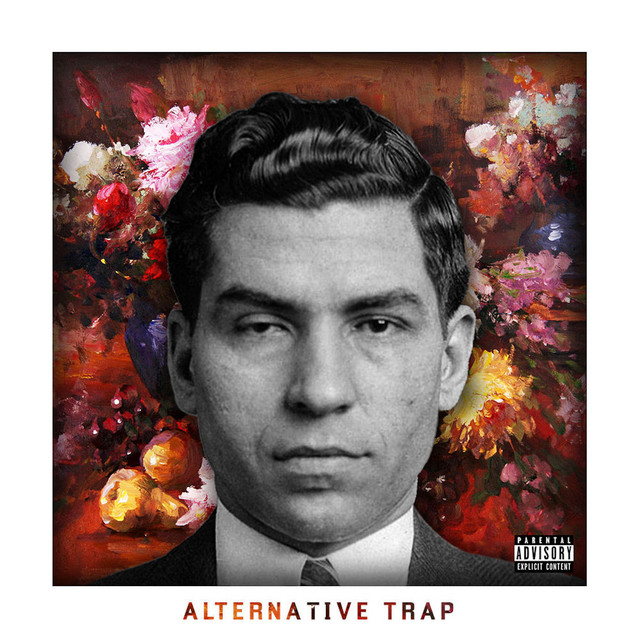
What’s your opinion on Lucki?
Lucki? Lucki is a great artist. I think he’s also really important, especially his first; I would say probably his first three albums. They are really important for Cloud Rap and Internet rap in general, especially Alternative Trap. That is a great album. That’s really important. But yes, Lucki is great. I think he’s also important and super influential, especially in the voice he uses. He’s an exception to the rule when it comes to people focusing on the vibe over lyrical ability because he has a very monotone and simple voice. Still, he knows how to use it, and the lyrical substance is a lot more than a lot of these other Cloud Rappers compared to him. But I would say Yung Lean, Lil Ugly Mane, Playboi Carti, and Bladee. These are my favorite Cloud rappers, especially by Bladee. It’s really great. I really loved his most recent album Spiderr, that was really awesome. But, yeah, I think they’re great.
If you could bring back one aspect of Cloud Rap’s heyday, what would it be?
I would say I would bring back those insane samples. People would just grab literally anything they could possibly find, chop it up, and throw it in a beat. I think, because of how copyright and intellectual property laws work nowadays, it’s a lot harder to get samples cleared, which is why a lot of rappers have kind of moved away from using samples heavily, which I think is unfortunate and really disappointing. I think bringing back a lot of those crazy out-there samples that you just never hear or that a lot of these samples are also unknown too they’re from very obscure and odd pieces of music, even you see it with, like indie music from that time uses a bit of sample too, like “Chamber of Reflection” by Mac Demarco, very famously, has a sample right in the middle of it. It’s from an ambient album in the 70s. I don’t remember the artist’s name, but I would love to bring back the ability for these more underground artists to just go crazy and let their producers go insane. Chop up whatever you want and throw it in a beat. That would really push the art genre further.
Do you think Cloud Rap’s legacy is more about its sound or the culture and community it created?
It’s more about the culture and its influence, not necessarily the quality of the music and the sound itself. It’s like grunge. Grunge had a very short heyday, only about five years, but people still talk about it because of its lasting impact on music. And I think we’re kind of going to see the same thing with Cloud rap and its culture, of being very out there, left field, you know, not a part of the regular mainstream, and being okay with that. I think that exemplifies Cloud Rap, you know, using this art in your own way. A lot of people resonated with that, and I think people will continue to resonate with that, and we’re going to use that inspiration to make their music.
I know we already talked about where Cloud Rap is going and how it’s branching off into other genres, and I just kind of want to get your opinion on how you felt about its effect on other genres and music and where you think it’s going to go in the future?
Cloud Rap, at least in the traditional sense, will stay in the past for a while. Nobody’s going to be bringing it back anytime soon. People may see little pieces of it in songs. But we won’t get true Cloud Rap like we did back in 2014. I think you kind of see a lot of those influences in, like, more underground rap, like right now, kind of like Pluggnb, you know, you kind of see those very ethereal synths still making their return, and a lot of the subject matter of Cloud Rap being very like introspective, talking about the effects of the lifestyle that you live. You see that a lot still today in rap, and you see a lot of, maybe not as much, in the drums. The 808 trap takes over the drums because it’s so easy to make. It takes a couple of seconds to throw it into Logic or something. So I think it’s not making a comeback, not in the way we want it to or the way some people might want it to, but I don’t think we’ll ever see it fully disappear. People are always going to be inspired by it just because of the effect it has on rap as a whole.